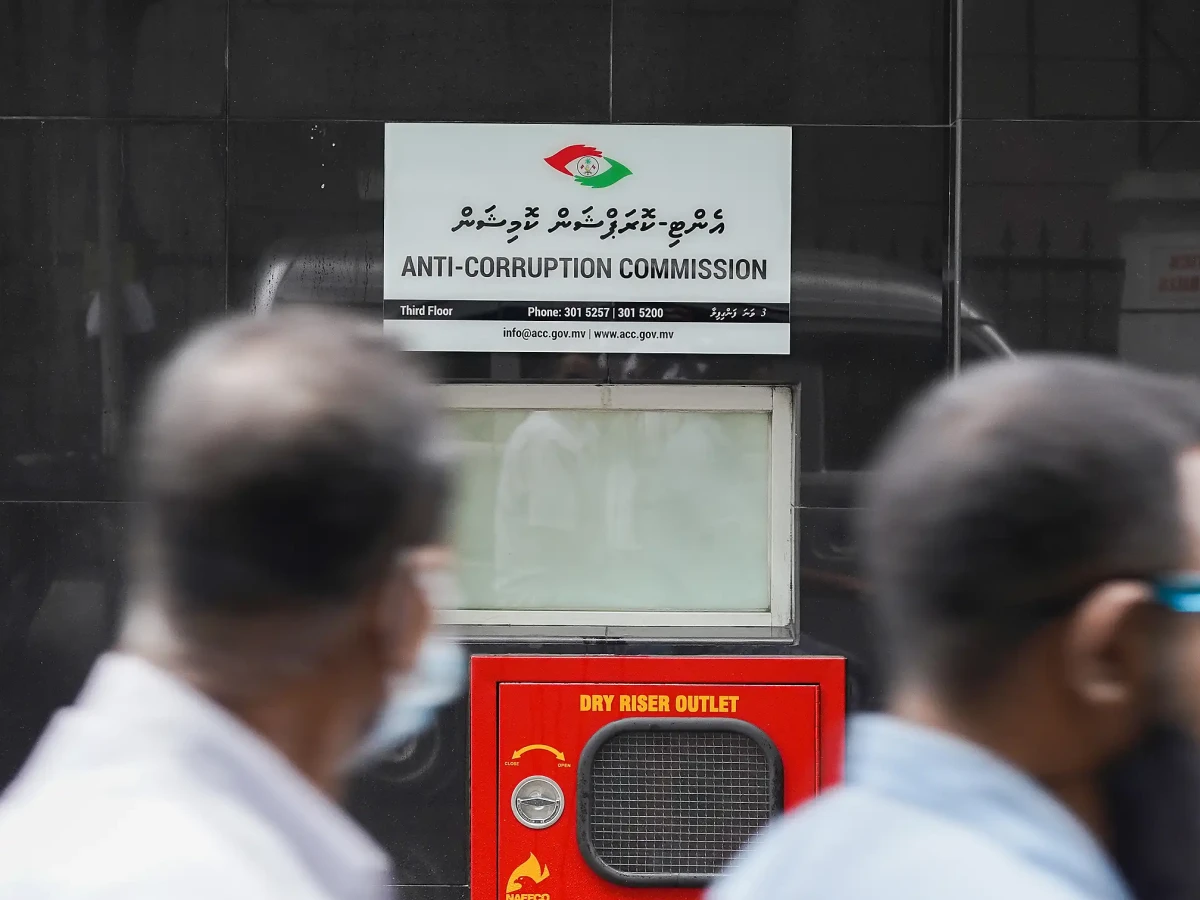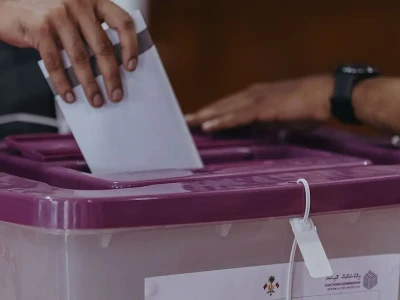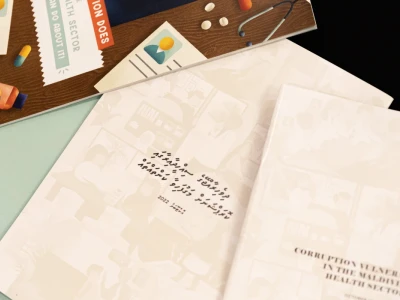
Maldives slips in corruption index, again scores below 50
The Maldives, with a score of 39, is ranked 93 out of 180 countries in the CPI 2023.
Top Stories
-
MP questions Nazim over blood shortages for thalassaemia patients
-
Police warn of online jewellery scam targeting bank details
-
Yameen to file case against EC over use of eFaas in elections
-
Fayyaz says media law used to control public expression
-
Commission issues revised notice on Adhadhu cartoon for media
Maldives has fallen one point in the CPI score, from 40 to 39, and remains among the two-thirds of countries to score below 50, the Corruption Perceptions Index (CPI) 2023 released by Transparency International on Tuesday revealed.
The CPI annually scores and ranks 180 countries and territories by their perceived level of public sector corruption, drawing on surveys and expert assessments. The index uses a scale of zero to 100, where zero is highly corrupt and 100 is very clean.
The Maldives, with a score of 39, is ranked 93 out of 180 countries in the CPI 2023.
CPI ranks countries by their perceived levels of public sector corruption, as determined by expert assessments and opinion surveys, and uses different sources to determine the score. The Maldives’ 2023 score was drawn from the composite assessment of three international sources: Global Insight Country Risk Ratings, Varieties of Democracy Project, and World Bank Country Policy and Institutional Assessment (CPIA).
The data reflects the stagnation in implementing and enforcing the laws to tackle corruption. As is true for the past years, Maldives has seen weak investigation, prosecution, enforcement, and implementation of laws resulting in increased lack of accountability of political and public officials.
Additionally, CPI scores in the middle of the index indicates more complex challenges such as grand corruption which includes the abuse of high-level power that benefits the few at the expense of the many. In such cases mere technical interventions, useful in addressing petty corruption, are not enough.
As the theme for CPI 2023 explains, the global trend of weakening justice systems is reducing accountability for public officials, and allowing corruption to thrive. To end impunity for corruption, governments must give justice systems the independence, resources and transparency needed to effectively punish all corruption offences and provide checks and balances on power. Where necessary, they must also introduce better procedures and laws to help justice institutions shield themselves from and target corrupt acts.
To reduce corruption and restore trust in politics, Transparency Maldives echoed the call by Transparency International and recommends that the Maldivian government:
-
Strengthen the independence of the justice system: Shielding the justice system from interference is paramount for its functioning. Promote merit-based rather than political appointments and ensure that the system has qualified personnel and is properly resourced
-
Introduce integrity and monitoring mechanisms: Ensure that the special protections required by members of the justice system to perform their functions are not abused. Abuse may be prevented through dedicated whistleblowing and reporting channels, as well as requirements for judges, prosecutors and other relevant actors to disclose their assets and interests, and ensure that salaries are commensurate to their work. To hold political and public officials accountable, we reiterate our calls to pass the bill on Asset Declaration drafted by Transparency Maldives in line with best practices to ensure a comprehensive asset declaration regime and verification mechanism is in place to prevent illicit enrichment, ending abuse of state resources and vote buying
-
Improve access to justice: Protecting people’s right to access justice is a first step against impunity and corruption. Strategies to pursue this goal include simplifying complex procedures, making legal processes available to all, widening the definition of victims of corruption to include non-state victims and granting qualified civil society organisations (CSOs) the right to initiate and bring forward cases of corruption – whether criminal, civil or administrative – and represent the interests of victims of corruption
-
Make justice more transparent: Ensuring that relevant data on enforcement, judgments and out-of-court settlements, as well as legal procedure and administration rules are openly available and can be scrutinised by members of the public could help discourage corruption and ensure that laws against corruption are properly applied and administered.
-
Strengthen capacity and resources of State Institutes to conduct full, transparent and timely investigation and prosecution: Anti-corruption authorities and oversight institutions must have sufficient funds, resources, and independence to perform their duties, free from intimidation and political influence
-
Defend democracy and promote civic space by fully implementing laws, especially related to Human trafficking and whistleblowing, creating an enabling condition for human rights defenders to hold human rights abusers, including the government, accountable.




